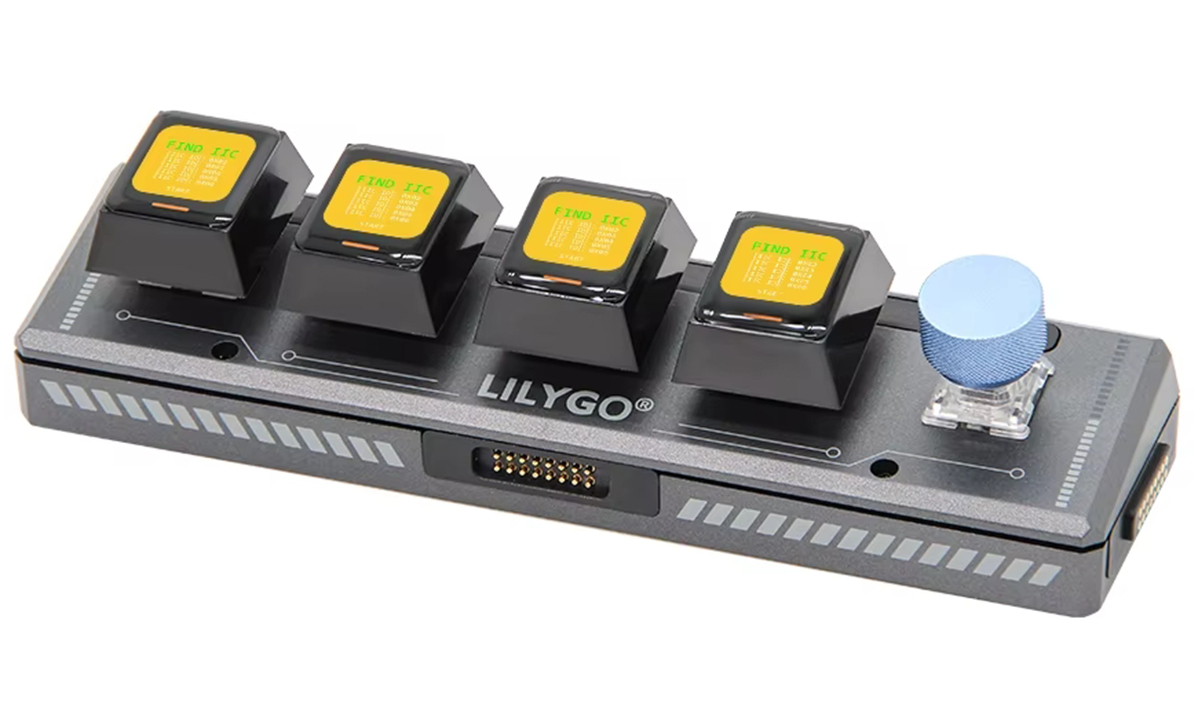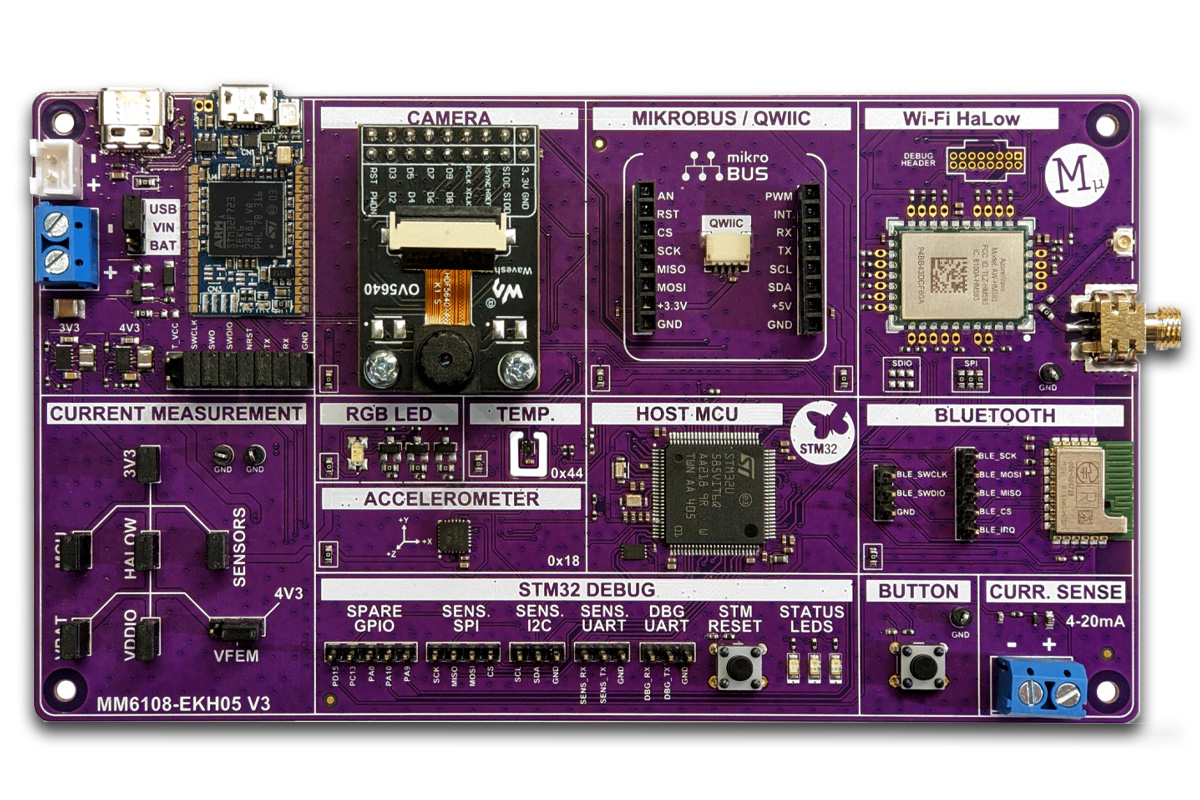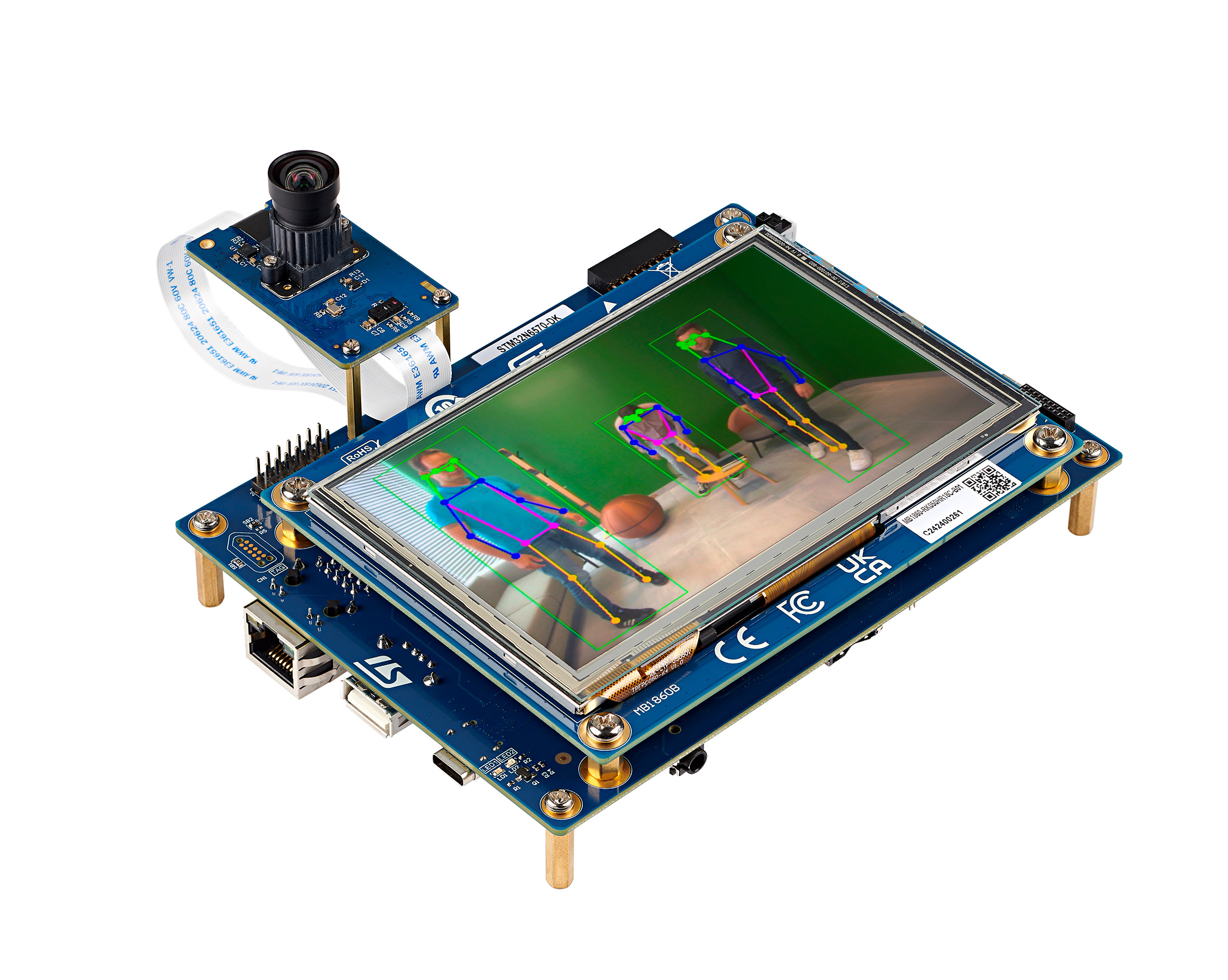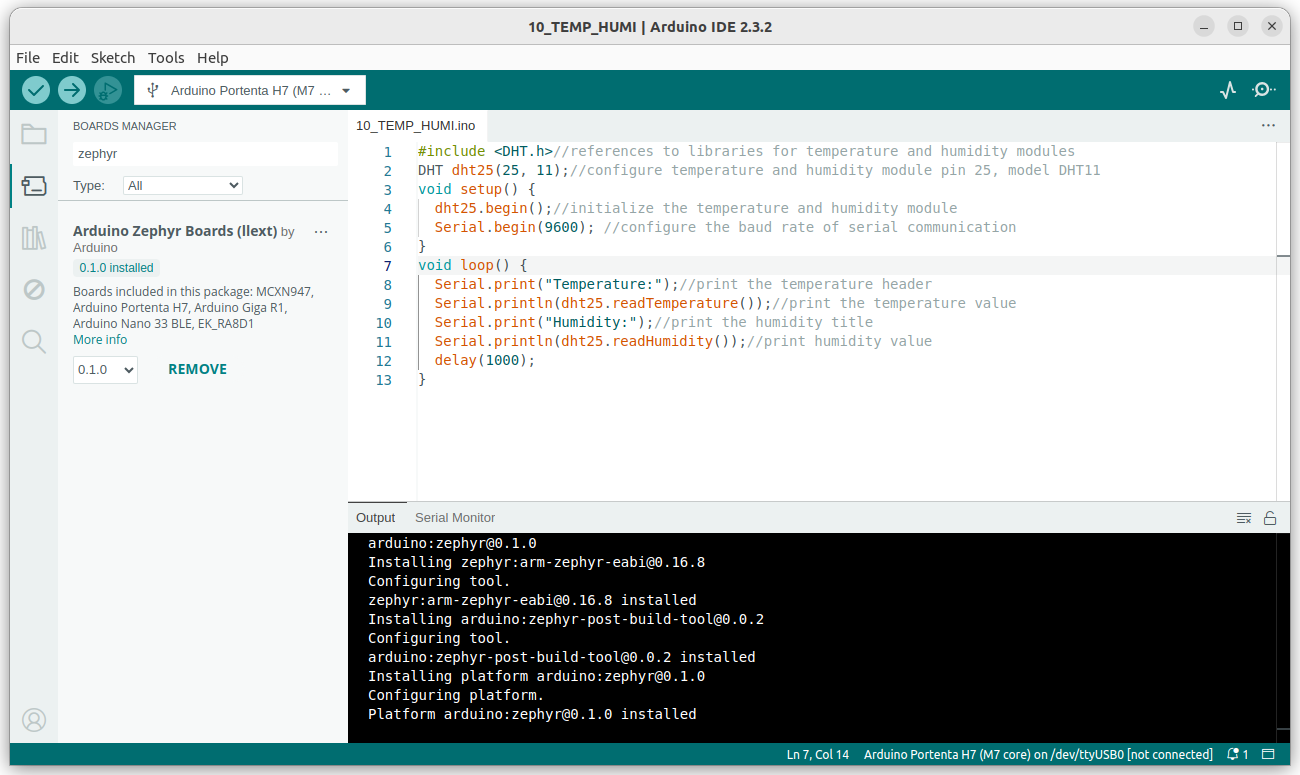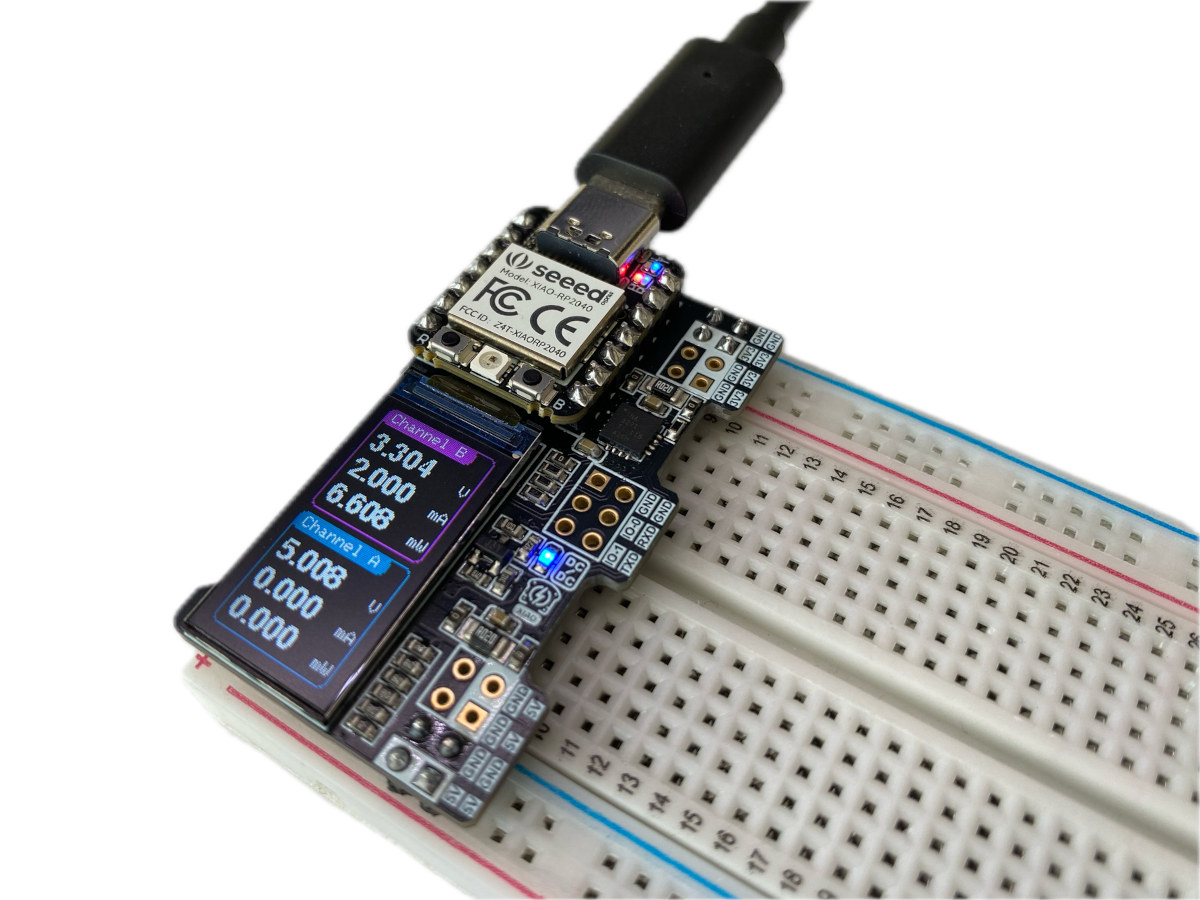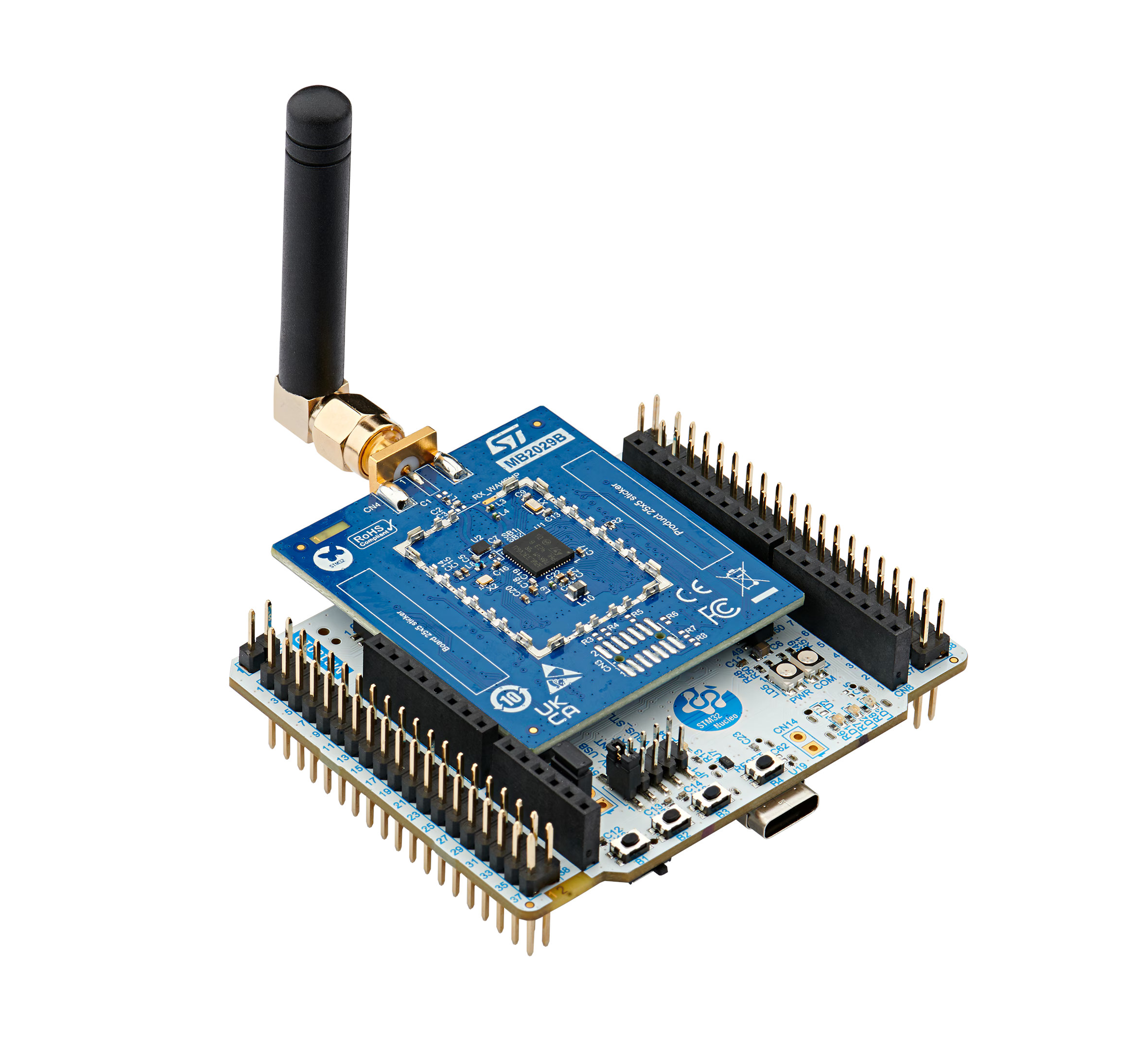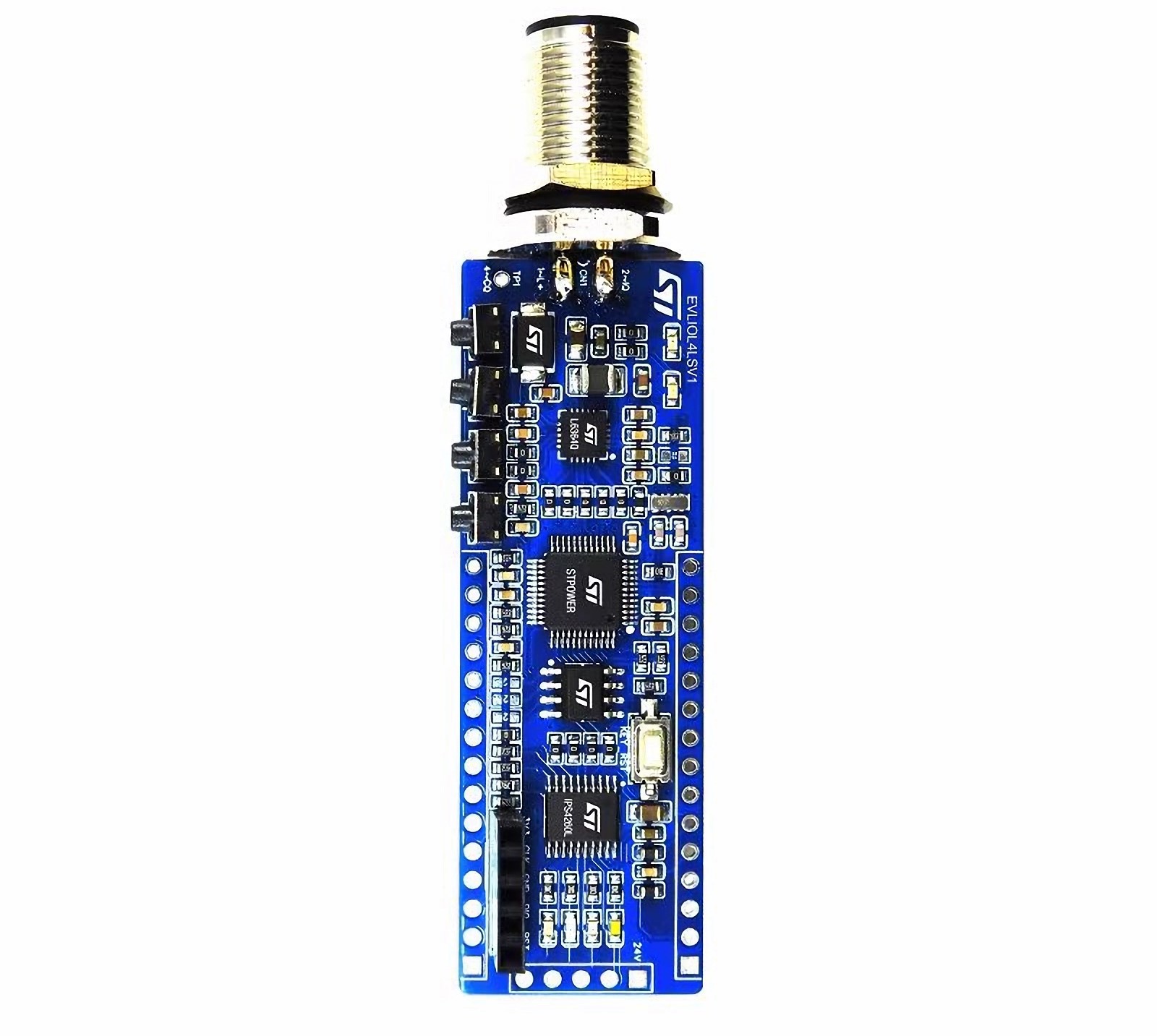Last year, we featured the T-Keyboard-S3, a USB mechanical keyboard with ESP32-S3, and four mechanical keys each fitted with a 0.85-inch color display. The upgraded T-Keyboard-S3-Pro adds a rotary encoder and four magnetic interfaces on each side controlked by an STM32G030 MCU to daisy-chain the host keyboard with up to 5 slave keyboards in a 3×2 grid. Previously, we featured the ANAVI Macro Pad 12, Macro Pad 10, and Macro Pad 2 programmable keyboards. Feel free to explore those as well. LILYGO T-Keyboard-S3 Pro specifications: Wireless module – ESP32-S3-WROOM-1 used in the host model only MCU – ESP32-S3R8 dual-core LX7 microprocessor @ up to 240 MHz with Vector extension for machine learning Memory – 8MB PSRAM Storage – 16MB SPI flash Connectivity – WiFi 4 and Bluetooth 5 with LE/Mesh PCB antenna Secondary MCU – STMicro STM32G030F6P6 for I2C magnetic connectors CPU – Arm 32-bit Cortex-M0+ CPU, frequency up to […]
STM32-powered MM6108-EKH05 Wi-Fi HaLow evaluation kit supports Bluetooth, Camera, and Qwicc/MikroBus modules
Morse Micro has recently launched the MM6108-EKH05 Wi-Fi HaLow Evaluation Kit designed to reduce the development and deployment time of IoT products. Built around the Morse Micro MM6108 HaLow SoC, this kit combines long-range, low-power wireless connectivity with a range of integrated sensors, making it ideal for IoT engineers and developers. Key features include Wi-Fi HaLow connectivity, an STM32U585 Cortex-M33 MCU, integrated sensors (temperature, humidity, accelerometer), 16 MB of SPI Flash memory, programmable GPIOs, power measurement tools, and WPA3 security for reliable and secure communication. The kit also includes alternative power options including USB, battery, or external power, and embeds support for a camera, MikroBus and Qwicc expansion modules, Bluetooth, and current measurement circuitry. All these features make this kit useful for applications including smart homes, industrial automation, and agricultural monitoring. MM6108-EKH05 specifications: MCU – STM32U585 Arm Cortex-M33 microcontroller @ 160 MHz with TrustZone, 2 MB Flash Storage – 16Mbit […]
STMicro releases STM32N6 Cortex-M55 MCU series with in-house NPU and dedicated computer vision pipeline
STMicro has announced the availability of the STM32N6 microcontroller series based on the 800MHz ARM Cortex-M55 and the 600 GOPS-capable Neural-ART Accelerator. The STM32N6 is the company’s “newest and most powerful STM32 series,” bringing MPU-level performance to MCUs. It is the first STM32 to feature the Arm Cortex-M55 and offer up to 4.2MB of embedded RAM. Additionally, the chip includes ST’s NeoChrom GPU and an H.264 hardware encoder. According to Remi El-Quazzane, MDRF (Microcontrollers, Digital ICs, and RF Products) President at STMicro, the STM32N6 “marks the beginning of a long journey of AI hardware-accelerated STM32, which will enable innovations in applications and products in ways not possible with any other embedded processing solution.” STMicro offers two versions of the STM32N6 MCU: the STM32N6x7 AI line featuring the Neural-ART accelerator and the STM32N6x5 GP (general-purpose) product line without an NPU. The microcontroller series is primarily targeted at computer vision and audio […]
Arduino Core for Zephyr beta released – Let’s give it a try!
Last July, Arduino announced plans to switch from the soon-to-be deprecated Arm Mbed to Zephyr RTOS, and the company has now outed the first beta release of “Arduino Core for Zephyr OS” for a range of boards. From the user’s perspective, this should not change anything. However, there are massive changes under the hood and Arduino sketches are built and executed differently with the Arduino Core for Zephyr. Some highlights of the new Zephyr-based Arduino core implementation include: Dynamic sketch loading – Sketches are compiled as ELF files and dynamically loaded by a precompiled Zephyr-based firmware. Zephyr subsystems support threading, inter-process communication, and real-time scheduling. Fast compiling and smaller binaries since a thin layer of user code and libraries are compiled, while the rest of the ZephyrOS is already binary. You can get started straightaway with the code and instructions on GitHub. You’ll need Arduino 2.x.x for this to work. […]
XIAO Powerbread is a breadboard power supply and meter based on XIAO RP2040 or ESP32 USB-C board
The XIAO Powerbread is a breadboard power supply and meter compatible with XIAO RP2040 or ESP32 USB-C boards and equipped with a color LCD display showing real-time voltage, current, and power consumption for 5V and/or 3.3V power rails. Breadboard power supplies are nothing new. We’ve written about several over the years including the Toaster board with adjustable voltage from 5 to 16V, the SwitchTrick switching power supply board, and the MEGO portable breadboard power supply with a built-in battery. The XIAO Powerbread only supports 5V and 3.3V power rails, but its main selling point is its integrated breadboard power meter function. XIAO Powerbread specifications: Supported USB-C modules General purpose MCU – XIAO RP2040, XIAO RP2350 WiFi / Bluetooth MCU – XIAO ESP32S3, XIAO ESP32C3, XIAO ESP32C6 Display – 0.96-inch color TFT LCD with 160×80 resolution and ST7735S SPI controller Power monitoring – 2x TI INA3221 sensors connected over I2C […]
STMicro NUCLEO-WL33CC1 and NUCLEO-WL33CC2 boards features STM32WL33 Cortex-M0+ Sub-GHz wireless MCU
STMicro unveiled the STM32WL3 sub-GHz wireless MCU family last year and has now announced the general availability of the STM32WL33 Arm Cortex-M0+ microcontroller, along with two development boards namely the NUCLEO-WL33CC1 and NUCLEO-WL33CC2 for battery-powered smart meters and smart building and industrial monitoring solutions using wireless M-Bus, Sigfox, WiSun, LoWPAN or Mioty LPWAN protocols among others. The NUCLEO-WL33CC1 and NUCLEO-WL33CC2 development boards look the same, but the former supports 826-958 MHz high-band frequencies, while the latter handles 413-479 MHz low-band frequencies. STMicro NUCLEO-WL33CC1/2 specifications: SoC – STMicro STM32WL33CCV6 MCU Core – Arm Cortex-M0+ up to 64 MHz Memory – 32KB SRAM with full retention Storage 256KB flash 1 KB OTP flash (user data) Sub-GHz Wireless 413-479 MHz or 826-958 MHz frequency bands with OOK, ASK, 2(G)FSK, 4(G)FSK, D‑BPSK, and DSSS modulations Compatible with proprietary and standardized wireless protocols such as WM-Bus, Sigfox, Mioty, KNX-RF, and IEEE 802.15.4g Low-power autonomous wake-up […]
STMicro releases IO-Link actuator board for industrial monitoring and home appliances
STMicro has announced the EVLIOL4LSV1 IO-Link actuator board, an STM32G071CB Cortex-M0+ MCU-based reference design for commercial manufacturers with a built-in protocol stack and application software. Aimed at industrial beacons and home-appliance alarms, the EVLIOL4LSV1 combines the L6364Q dual-channel IO-Link transceiver (communications) and IPS4260L intelligent low-side power switch (for driving industrial loads). The EVLIOL4LSV1 IO-Link actuator board is powered by an STM32G071CB Arm-Cortex-M0+ microcontroller that hosts the proprietary stack and application software and communicates with the transceiver and low-side power switch. The evaluation board can be used to test the IPS4260 and L6364Q ICs. It features a 4-pin M12 connector for an IO-LINK master and a 5-pin SWD connector for programming. It can also directly interface with signaling systems, ranging from smart tower lights in factory automation to funnel alarms for quantity monitoring. The onboard transceiver is protected against electromagnetic interference and supports COM2 and COM3 speeds. It offers multiple modes […]
Black Friday and Cyber Monday 2024 – International deals and coupons
While Black Friday and Cyber Monday used to be a US-only event, it changed many years ago, and we’ve been writing about international Black Friday and Cyber Monday deals and coupon codes since 2014, since a large portion of our audience cannot benefit from promotions on Amazon’s Black Friday and Cyber Monday events that will take place from November 21 until December 2 this year. So I’ve gathered some international Black Friday and Cyber Monday 2024 deals and discount coupon codes from relevant manufacturers and popular online stores such as Aliexpress, Banggood, and others. Aliexpress Black Friday and Cyber Monday event Aliexpress’ Black Friday and Cyber Monday 2024 event has already started. There are three periods: Nov 19-21 PST – Warm Up event where users can find and add items to the cart before purchasing during the main event. Nov 22-30 PST – “On Sale” event with discounts up to […]


